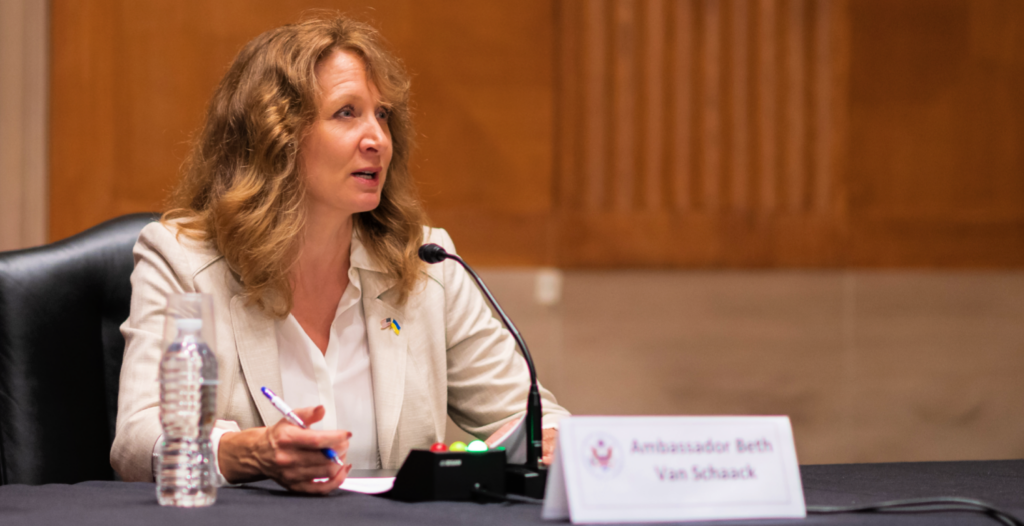WASHINGTON – Last night the House of Representatives unanimously passed H.Res. 578, encouraging the Government of Romania to “amend its child welfare and adoption laws to decrease barriers to adoption, both domestically and intercountry, including by allowing intercountry adoption by persons other than biological grandparents.”
“The Romanian child welfare system, including its ban on intercountry adoption, has been hailed by some as a model for protecting orphaned or abandoned children. In reality, the Romanian Government’s own statistics and reports from concerned individuals in Romania indicate that the children’s situations have actually worsened since passage of the new laws in 2004,” said Commission Chairman Senator Sam Brownback (R-KS). “Members of Congress and the U.S. Helsinki Commission will not stand idly by as these children suffer. We will also vehemently oppose any effort to replicate the Romanian model in other countries.”
A major problem with Romania’s laws is that they place an unrealistic priority on “unification” of an abandoned child with biological relatives without regard for how long unification should be attempted, how old the child is, or how long he or she has been in state care without contact with relatives. As a result, it is nearly impossible to declare any child adoptable. The U.S. Helsinki Commission examined these problems at a September 14, 2005, hearing entitled “In the Best Interest of the Children: Romania’s Ban on Inter-Country Adoption.”
“I am very pleased that the House of Representatives has forcefully spoken about the need to provide permanent homes and families for tens of thousands of children in Romania,” said Commission Co-Chairman Rep. Christopher H. Smith (R-NJ) who sponsored the measure. “We urge Romanian authorities to reconsider their adoption law. The law is bad for children—it has nearly shut down adoptions within Romania and completely foreclosed the option for adoption by a loving family in another country. It is also inconsistent with the Hague Convention on Intercountry Adoption which supports the propriety of international adoption as a legitimate way to find families for children in need.”
“The Romanian Government heard from the House of Representatives today that more must be done to provide permanent, loving homes for children,” said Commission Ranking Member Rep. Benjamin L. Cardin (D-MD). “If adoptive families can be found within Romania that is wonderful. But that capacity clearly does not yet exist and, in the meantime, intercountry adoption must be reconsidered as an option for children who will otherwise spend a lifetime languishing in state care.”
The House resolution passed by a vote of 428-0.
The resolution notes that when intercountry adoptions were prohibited by law 273 in 2004, there were believed to be approximately 1,700 pending cases in which children had been matched with adoptive parents in other countries, including the United States. Recent statements by the Romanian Government have placed the actual number of pending cases at 1,100. The resolution “urges the Government of Romania to complete the processing of the intercountry adoption cases which were pending when Law 273/2004 was enacted.” Romania is party to the Convention on Protection of Children and Co-operation in Respect of Intercountry Adoption (commonly known as the Hague Convention on Intercountry Adoption).
“Despite the Romanian Government’s repeated promises to analyze each pending case thoroughly, transparently and with the child’s best interest in mind, we’re hearing that they have now all been rejected,” said Commissioner Rep. Joseph R. Pitts (R-PA). “The majority of these children still do not have permanent families in Romania, but the government has denied them permanence elsewhere due to misguided politics driven by EU accession.”
“It is my fervent hope that passage of this resolution will cause the Romanian authorities, and those in the European Union to whom they look for advice, to take a new stand for innocent babies and children,” said Smith.





